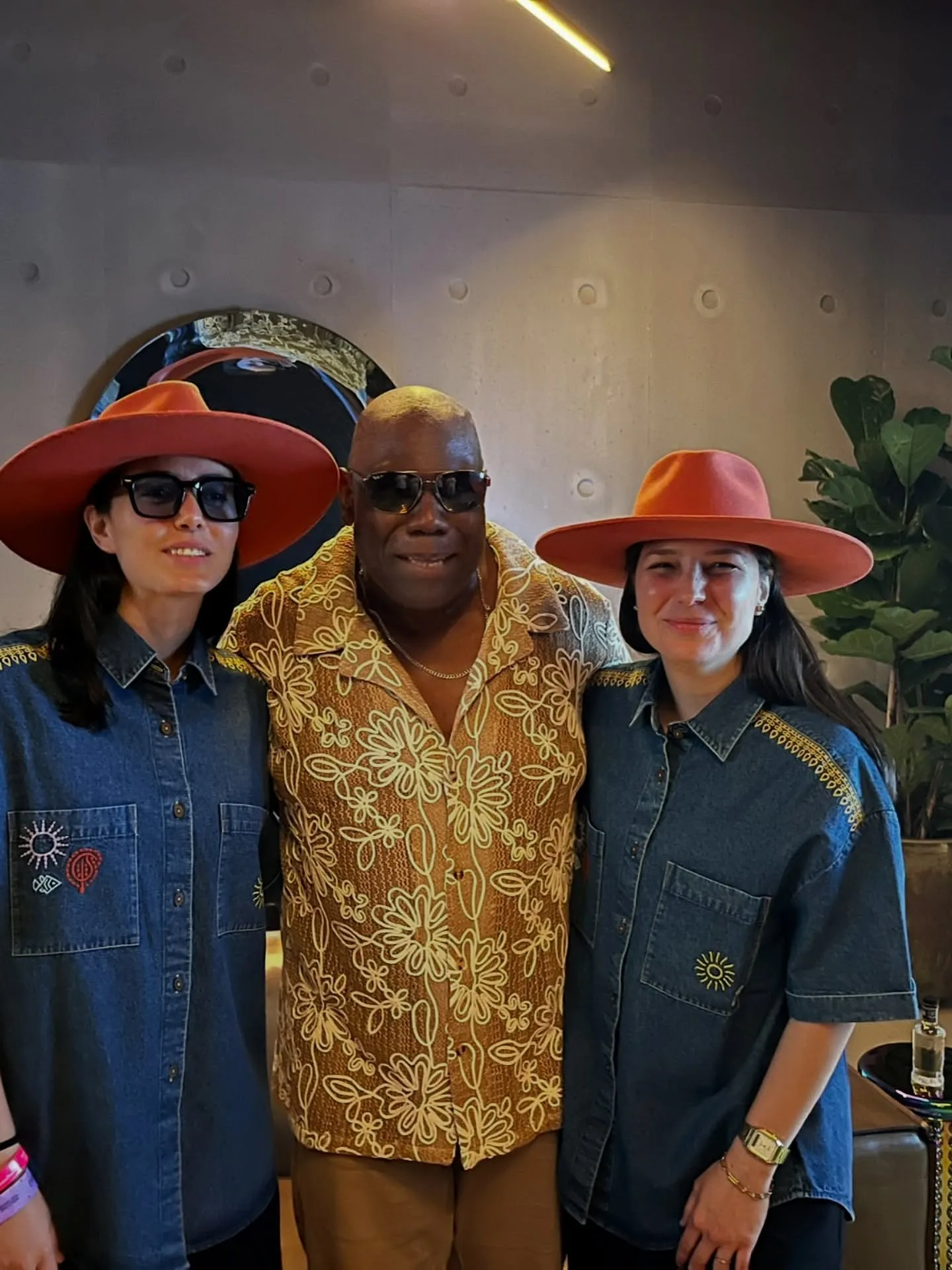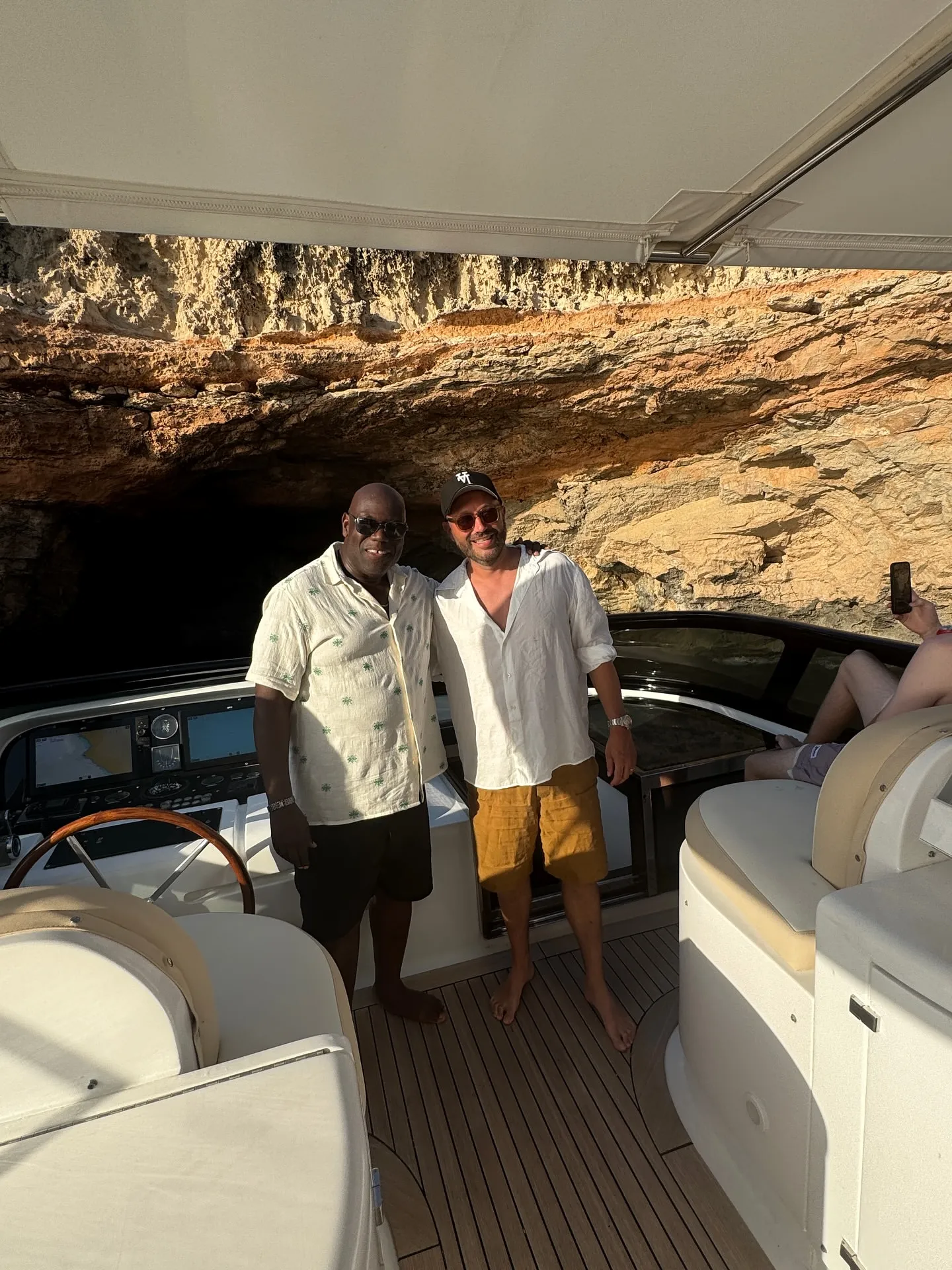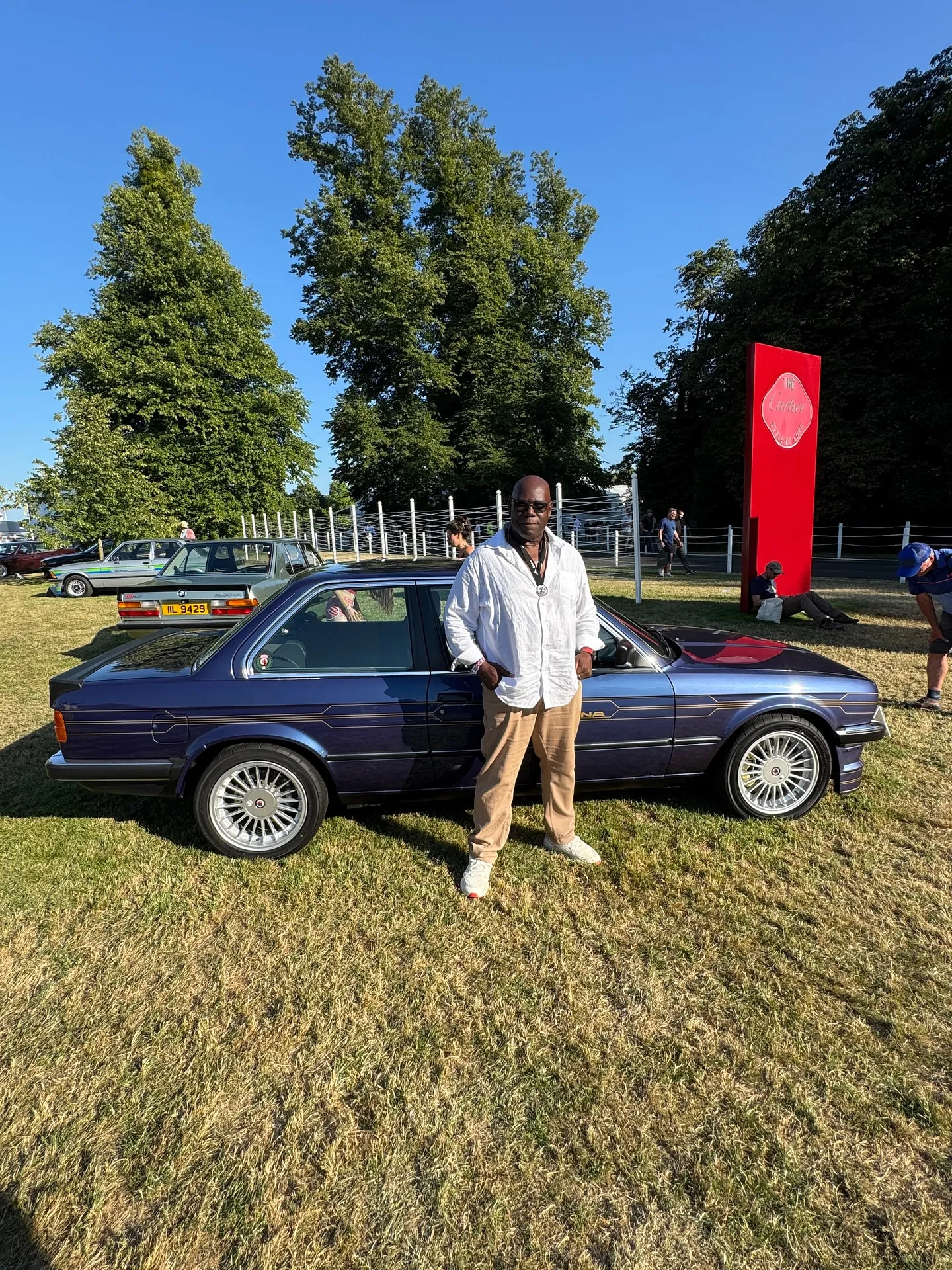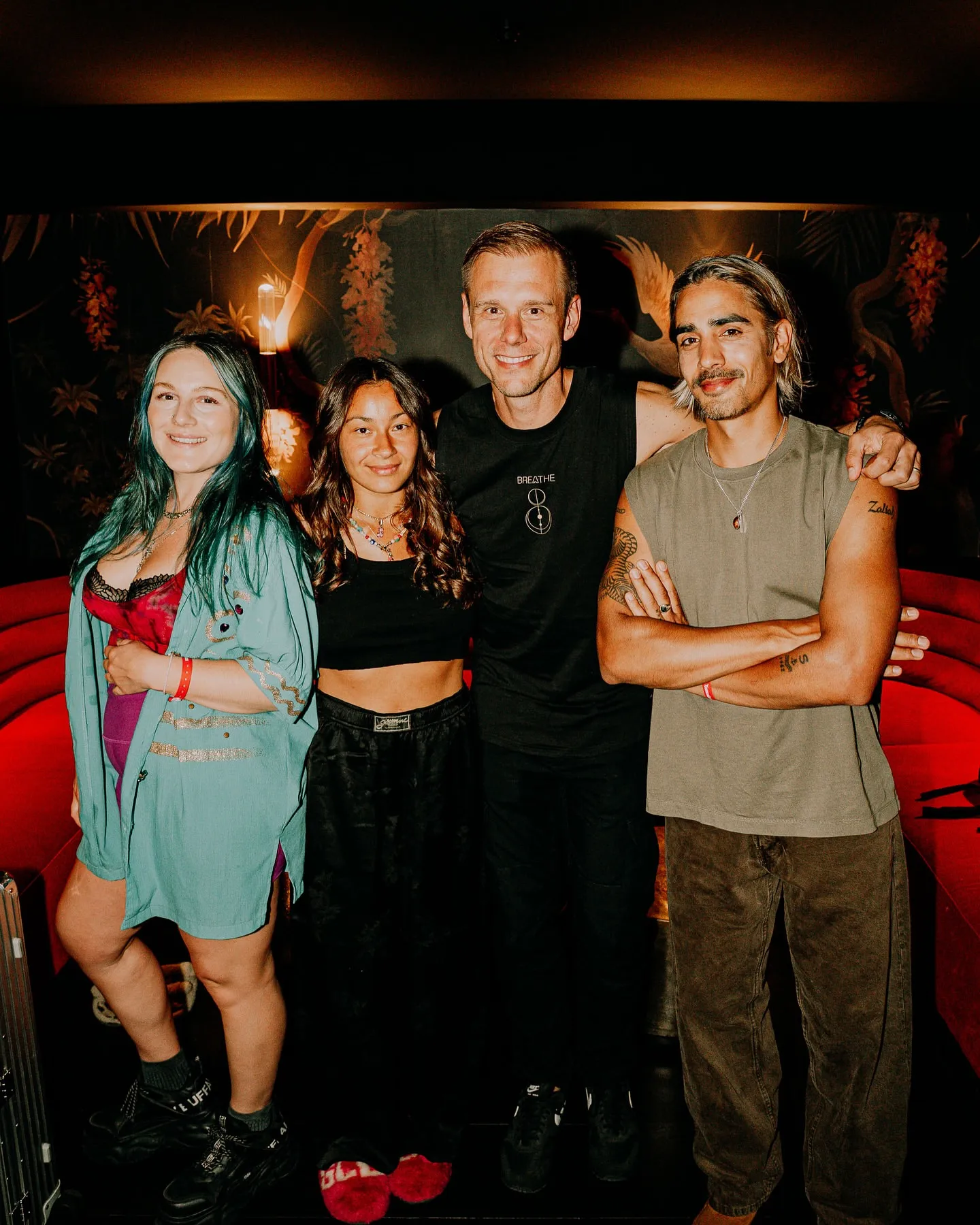

A Top DJ’s Temporary Stage Escape and How They Reset Themselves and Their Careers
For more than four decades, Carl Cox has stood as one of the most recognizable and respected names in the global electronic music scene. Known as the “three-deck wizard,” he has played for crowds of tens of thousands at festivals like Tomorrowland, Ultra Music Festival, and Space Ibiza. His energy on stage remains infectious even in his sixties, and his reputation as a pioneer of house and techno is unmatched.
But with such a career comes immense pressure. International DJs often spend over 200 days a year on tour, traveling across continents, switching time zones, and facing crowds who expect perfection every single night. The constant adrenaline, the scrutiny of social media, and the expectations from fans and promoters can be overwhelming. Many artists in the EDM industry have publicly spoken about burnout, mental health struggles, and the toll of constant performance.
This leads us to an important question: How does Carl Cox maintain his energy, passion, and creativity after so many years?
The answer, in part, lies in something deceptively simple: escapism. For Carl, escapism does not mean running away from music or responsibility. Instead, it’s a way to step outside the stage lights, recharge, and rediscover joy in life’s simple pleasures—cars, golf, travel, and time with friends. This balance allows him to return to the DJ booth with fresh inspiration.
In this article, we’ll explore how Carl Cox embraces escapism, why it matters for artists in the music industry, and what lessons fans and younger DJs can learn from his lifestyle.
Carl Cox Beyond the Decks
When fans think of Carl Cox, they picture him behind the decks, smiling wide, throwing his hands in the air, and controlling the crowd like a seasoned conductor. Yet outside the stage, Carl is far from the superstar image. He is approachable, warm, and grounded.
Cars: A Passion for Speed and Control
Carl has openly shared his love for cars, particularly high-performance and vintage models. For him, cars represent freedom and mastery. Driving through open roads at high speed offers a sense of liberation similar to dropping a perfectly timed bassline in front of a roaring crowd. Both demand focus, control, and an appreciation of rhythm—whether it’s the rev of an engine or the pulse of a beat.

Golf: Finding Zen in Precision
Golf may seem like the opposite of EDM, but for Carl, it serves as a form of meditation. The slow pace, quiet surroundings, and demand for precision create a space where he can detach from the intensity of touring. Golf requires patience, discipline, and focus—qualities that parallel his approach to mixing records and producing music.
Travel: Cultures as Inspiration
As an international DJ, Carl has traveled the world. Yet beyond performing, he also enjoys traveling simply for leisure—exploring new cultures, food, and landscapes. Each destination brings fresh perspectives. Many times, these experiences influence his music: local instruments, rhythms, and atmospheres subtly weave into his sets and productions.
Friends and Community: The Human Side
For Carl, escapism isn’t just solitary. He treasures spending time with friends and the community around him. Whether sharing a laugh over dinner, enjoying a quiet moment on the beach, or discussing cars with fellow enthusiasts, these interactions keep him grounded. His circle provides support and joy, reminding him that life is not only about the next gig.
In essence, Carl Cox beyond the decks is a man who values balance, simplicity, and genuine human connection.
The Psychology of Escapism in Music Industry
Escapism often gets misunderstood as avoidance. But psychologists define it as a temporary detachment from stress or routine to restore mental balance. For artists, especially in high-pressure industries like music, escapism is crucial.
Why DJs Need Escapism
-
Touring pressure: DJs fly across continents, often performing late nights and catching early flights. The irregular schedule disrupts sleep and health.
-
Social media expectations: Every move is scrutinized by millions. One bad set or a negative comment can spiral into online drama.
-
Burnout risk: Constant adrenaline and little rest lead to exhaustion, anxiety, and loss of creative spark.
Escapism as Mental Recharge
When DJs like Carl Cox step away from the booth and immerse themselves in hobbies, they give their minds space to breathe. The act of doing something unrelated to music allows creativity to reset.
Studies in psychology show that novel experiences and relaxation activities stimulate new neural pathways, boosting problem-solving and creative thinking. For Carl, driving cars, playing golf, and traveling are not distractions—they’re investments in his artistic longevity.
Cars, Golf, and Travel: Escapism in Action
Cars: A Reflection of Freedom
Carl Cox once mentioned that driving gives him a sense of peace he doesn’t find anywhere else. Cars, for him, are not only machines but experiences. When he accelerates, he feels in control, free from the demands of fans or promoters. The adrenaline parallels the rush of dropping a track, but without the weight of expectation.
Interestingly, the rhythm of driving mirrors the rhythm of music. The sound of engines, the shifts in gears, and the flow of the road can feel musical. Many DJs have admitted to testing new tracks while driving, letting the car’s movement become part of the listening experience.
Golf: Patience Meets Precision
Unlike the fast pace of nightlife, golf offers Carl a chance to slow down. The silence of a golf course, the green expanse, and the focus required to hit a shot allow him to reconnect with himself. Golf is about mindfulness, much like mixing—every small adjustment matters. A slightly off balance in golf ruins the shot; a mistimed transition in DJing ruins the flow. Both demand focus and presence.
Travel: Cultures as Soundscapes
Traveling opens Carl to new environments that feed his creativity. A trip to Asia might introduce him to traditional instruments or rhythms that later inspire his sets. A vacation in South America could expose him to tribal beats or local celebrations. By embracing cultural diversity, Carl enriches his music with authenticity.

For fans, this explains why his sets feel both global and timeless. They’re not confined to one sound, because Carl himself draws from diverse real-world experiences.
Friends, Community, and the Social Side of Escapism
Escapism isn’t always solitary. For Carl, spending time with friends is part of the process.
Unlike some DJs who isolate themselves between tours, Carl embraces his community. He enjoys dinners, car meetups, and casual golf rounds with friends. These interactions bring laughter, stories, and perspective.
Psychologists argue that social escapism—shared experiences that take us away from stress—can be more beneficial than solitary escapism. It reduces feelings of isolation, provides emotional support, and reinforces a sense of belonging.
Carl’s openness to people explains why fans and fellow DJs often describe him as “Uncle Carl.” He exudes warmth and makes people feel valued, whether they’re superstars like Fatboy Slim or an everyday fan meeting him for the first time.
Escapism vs. Escape: The Fine Line
It’s important to distinguish between escapism and escape.
-
Positive escapism: temporary, intentional activities that recharge energy and stimulate creativity.
-
Negative escape: unhealthy avoidance, often through substances, addictions, or denial of problems.
The music industry is filled with cautionary tales of artists who leaned toward destructive escape—substance abuse, reckless partying, or isolating behavior that damaged their careers and health.
Carl Cox, however, exemplifies the positive side. His hobbies are not about running away but about enhancing his life. Driving, golfing, traveling, and socializing allow him to return to music stronger. This balance is why, unlike many peers who faded or burned out, Carl remains relevant and loved after decades.
Industry Lessons: Why Escapism Matters for Artists
Carl Cox’s approach holds valuable lessons for the music industry:
Longevity Through Balance
Artists who find healthy outlets beyond their careers are more likely to sustain their success. Escapism prevents burnout and fosters creative renewal.
Creative Cross-Pollination
Exposure to hobbies and cultures outside music introduces new perspectives. A DJ who loves photography may translate visual inspiration into sound. For Carl, cars and travel bring rhythm, motion, and cultural variety to his sets.
Examples from Peers
-
Armin van Buuren practices yoga and family time to balance his touring life.
-
Deadmau5 finds escapism in technology and gaming.
-
Skrillex embraces photography and travel.
Each shows that escapism is a universal need, not a luxury.
Advice for Younger DJs
New artists entering the EDM world often feel pressure to stay constantly active on social media and perform as much as possible. Carl’s life offers a reminder: it’s okay to step back, recharge, and find joy outside the booth. That balance might be the key to a sustainable career.
Conclusion: The Power of Balance
Carl Cox’s story is more than a tale of musical success. It’s a reminder that even legends need balance. His love for cars, golf, travel, and community is not a distraction from his music—it is the very foundation that keeps his creativity alive.

Escapism, when practiced positively, is not about running away. It’s about stepping aside briefly to return stronger. For Carl, these escapes are fuel for longevity, authenticity, and inspiration.
As fans, we often admire his powerful performances. But perhaps the true lesson is this: to burn bright for decades, sometimes you must step into the quiet, embrace the simple joys, and let life outside the stage inspire the music within.


















